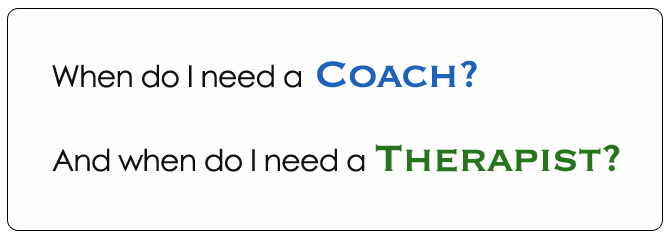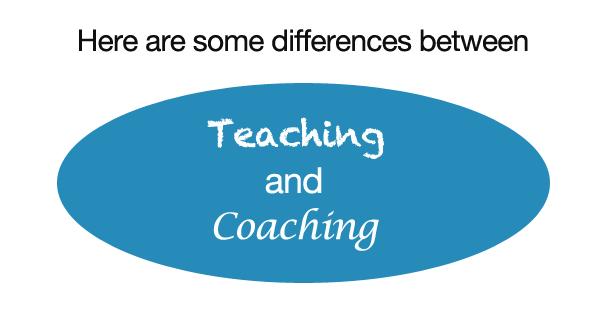|
It’s Valentine’s Day. True, a “Hallmark Holiday” for many, but a good excuse nonetheless to look at Love.
Love is a vast topic, and perhaps the only topic truly worth discussing. Love is, in the end, everything. But love is also incredibly misunderstood. The concept of love that many of us grow up with is (quite unintentionally, most of the time) conditional: The basic assumption is that “I will love you when/if you do this.” This assumption is not typically stated out loud (although sometimes it is brutally drilled into kids’ bodies-minds), and most parents really would never mean or think such a thing. But whether they are aware of it or not, parents’ actions and seemingly benign statements can sound to a kid like...
6 Comments
I’ve recently started a creative writing group at my house. We eat homemade scones, chat about writing topics, and do some creative exercises to get the words flowing onto the page.
The other day, one member of the group seemed distressed that I would be the only one responsible for organizing our gatherings: “Isn’t it a lot of work for you to plan and host us every time?” I looked at her with what can only be described as shock. And then I realized why she might interpret the planning and hosting of such an event as a relative burden. She has a family, her own service business, and a deeply rooted local community to tend to that she’s built over 20 years. Therefore, she has lots of roles and possible demands on her time and energy. Adding one more ounce to that load might, indeed, feel as though it could break the camel’s back, especially if she weren’t careful to engage in self-care first. As opposed to my new friend, however, I have no family here. I have been on a long-overdue sabbatical from a draining desk job that I took after we moved, so I have not had students or clients to tend to since last spring. I have had no local community and no friends at all, outside of my wonderful husband, since we moved overseas 4 years ago. (FOUR years!) Because the concept of “coaching” is still so nebulous to the majority of folks, I thought I’d whip up this quick list of comparisons that should help differentiate it from counseling or therapy.
For a while now, I have been saying that I’d write about ENFPs because they fascinate me (or I should say, “we” fascinate me). You probably want to know, what is an ENFP?
To understand what it is, you need a little background. Back in the '90s and early '00s, you might have heard of the Myers-Briggs Personality Inventory and/or read a book called Please Understand Me II. Both resources include the comprehensive personality test commonly known as the Myers-Briggs. I think a friend introduced me to it in about 1999, and I continue to be blown away by the accuracy of the description of this, my personality type, over the subsequent decades. As I enter the world of the coach again, I find myself pondering the differences between coaching and teaching and what they mean to me.
I don’t think I ever bothered to investigate their differences very closely before, because I had never spent so much time teaching in my life. But now that I have 17+ years of teaching under my belt, I can pick apart the qualities of teaching and coaching quite well. These are my realizations. If Jillian Michaels hates her butt, then you should too.
That's the underlying message behind this news from Ms. Michaels [this was an Examiner article and it's no longer live so I removed the link]. It's just one more piece of evidence that
I spent years hating my body. It was never going to be good enough because I was comparing it against some unrealistic ideal (the origins of which I still don't know). I finally got smart, though, and realized that my body was here not to look a certain way but to do certain things, such as... Looking perfect or feeling good. That struggle has been on my mind a lot lately as I welcome a host of new internal and external conditions that have a direct impact on my identity as a "health and fitness professional":
The items in the above list have undermined the major belief that drove me to exercise obsessively for the first 10 years of my professional fitness career: my body was really messed up from scoliosis and other health issues, and I had to work really hard to make it appear "perfect" or I wouldn't be respected, successful, or loved. I think perhaps a majority of women are led to believe something very similar, and that is what countless "love your body" campaigns and groups are designed to help defuse. But as anyone who has made a major shift in her life knows, old beliefs and thought patterns die hard. Really hard. It takes more than a simple ad campaign or a support group to change our core beliefs.
Especially when every bit of advertising and social conditioning in our society says, "Women are their bodies, nothing more, and we demand that those bodies appear PERFECT!" And as a professional in the fitness and wellness industry (and, sadly, also in "Westernized" yoga)? Forget about it: We are ALL supposed to be perfect icons of bodily perfection: no body fat, no cellulite, no structural malformations, no outward appearance of aging, perfect curves in exactly the right places, and energy so abundant we work out hours a day without a care in the world. Hmph. I don't think anyone can adhere to those expectations without being sick and obsessed. So here I reveal the strategies that work to ensure that I don't fall into the "trying to appear perfect" trap again. If you recognize yourself struggling with anything I've mentioned so far, maybe one or more of these can help you, too.
When faced with the choice to "look perfect" or "feel good," I'm opting for feeling good from here on out. What about you? ** I had so many wonderful, heartfelt comments to this post on its original Wordpress page. It's too bad I could not preserve them when I moved the site. Perhaps new readers would like to add some helpful comments of their own? I learned long ago, probably during one of my many self-help-book-reading jags, that expressing appreciation to others makes them feel really, really good, and it actually has a profoundly positive effect on relationships.
As I exponentially increased my expressions of appreciation and gratefulness--by consciously choosing to do so--I started to notice just how rarely I had heard such appreciation sent my direction. Such warm-and-fuzzy, heartfelt feelings of gratitude were apparently more rare than I ever imagined them to be, and I never would have noticed if I hadn’t made the concerted effort to increase my own delivery of these simple, yet meaningful, expressions. In my inbox last week, I received an e-mail from the leader of a women’s chorus that I belonged to in Chapel Hill, NC. Every week, this amazing woman sends out announcements of uplifting, healing, love-focused events, requests, and news items. Amongst the long list that day was a link to ArtofGratitude.com [sadly, the website is now defunct], described as “a free resource designed to help people create a daily practice of expressing gratitude.” This brilliant TED talk (posted below) by Dr. Brene Brown of the University of Houston Graduate College of Social Work reveals such important truths about our world today. Every single point that her research (and personal experience) reveals leads us to the importance of vulnerability in everyday life. Vulnerability is not honored in our society. In fact, it is condemned. But, as Dr. Brown so beautifully describes, we can't live authentic lives or have truly loving relationships without being vulnerable. Yoga is the ultimate means for experiencing vulnerability--just think about how insecure and judgmental we feel when we're in any balance pose! Embracing that vulnerability, that uncertainty, and leaning into it opens up whole new worlds of emotion that a controlled, invulnerable, fearful life doesn't allow: Love, Joy, Gratitude, and Worthiness. I hope you'll join me on the mat for some ecstatic vulnerability soon! Now, enjoy the video.
The Journal of Pain recently published research by Leong, Kano, & Johansen that shows a connection between spousal communication and physical pain. [See link at bottom of post.]
The topic of this study supports my whole existence as a back-care and yoga practitioner. Part of what makes my work so effective is my unwavering validation of my clients' emotions and lived experience. We all need that kind of validation of what we are feeling. And when we have pain, we really need our social environment to be supportive. It's one of the many reasons why social integration and a strong support network help us live longer, healthier lives. While earning my master's degree in communication, I focused my study on the methods of interpersonal communication that foster trust, respect, and partnership when one party is facing difficult life changes or emotional upheaval. Unfortunately, most couples have not completed such communication training. So when one spouse is in pain, the pain-free spouse is inadequately trained to actually help the other feel supported and "heard." Yet, that emotional support is crucial to the healing process. Without such emotional support, people can cope very poorly with pain and, in fact, hold on to pain for decades . . . or a lifetime. I'm so happy to read major peer-reviewed medical journals are publishing this type of psycho-social-medical research. Pain research has typically been focused on medications (which are more addictive than they are effective) and surgical interventions (which are shown to be less effective than just about any other pain treatment over the long-term). |
To search all content for your favorite keywords, use the search bar below.
Categories
All
Archives
May 2019
|
|
To search all website content, use the search bar here.
|
This entire website and all of it contents are copyrighted to Sara D. Hauber, 2011-2024.
If you would like to use or reproduce any of the materials here, please contact Ms. Hauber for permissions. |






 RSS Feed
RSS Feed